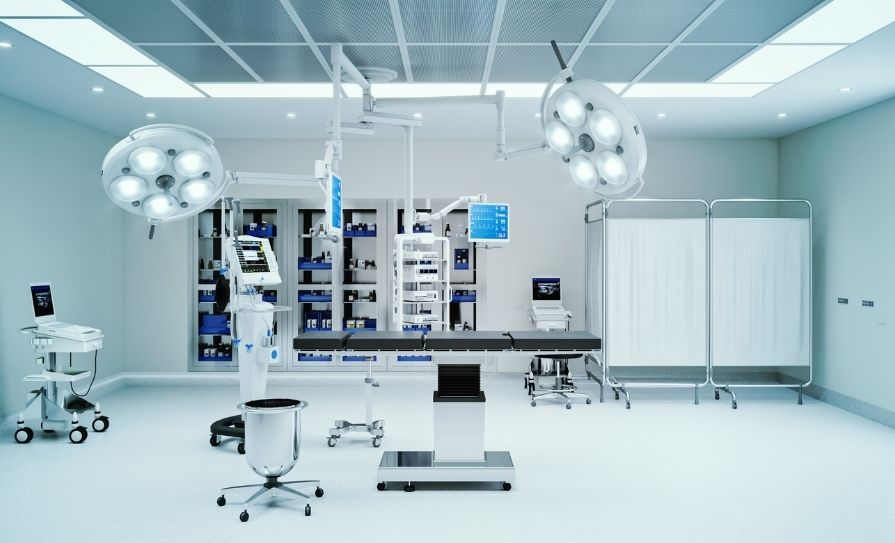In this current pandemic, we must not forget vulnerable children, writes Dr Ann-Marie Hayes
Covid-19 has infected all of our lives. It has consumed our media and paralysed our economy. The world seems caught, lungs expanded, unable to breathe a sigh of relief. We have come together, unified, against an existential threat. However, this idea of unity, a collective effort against adversity, disguises a reality where our most vulnerable – adults and children living in deprivation – are disproportionately affected.

I’ve been thankful for strong leadership from those in the health service and in Government. This crisis has precipitated monumental shifts in public policy. Huge sums of money have been made available for healthcare and social welfare. This is to be applauded; we need to protect our citizens in times of crisis.
However, we must not forget the serious issues we faced prior to Covid-19, a homelessness crisis of unprecedented levels and a health system continuously overwhelmed.
Inadequate community services
Over the past number of years, as a paediatric doctor, I have felt increasingly disillusioned sending referrals for community services that are woefully inadequate. Children wait far too long for essential services, such as early intervention, that might have a significant impact on their long-term potential. This crisis will increase the time children wait for specialist review and elective surgeries. These are children who have already waited far longer than they should. Where possible those who can afford it will avail of private care. The remainder must simply wait. This is especially true for children with special needs and disabilities. These children need all of us to highlight their plight and demand better.
In Ireland, one-in-10 children grow up in consistent poverty and 23 per cent of children meet the definition of living in deprivation. Deprivation means not having two-of-11 basic essentials, such as nutritious meals, a warm coat, or two pairs of durable shoes. Child homelessness has increased by 400 per cent in Ireland since 2014. This has improved in 2020, in part due to measures introduced in response to the pandemic.
Working with St Vincent de Paul, I have seen first-hand the adversity people faced before this crisis, despite a booming economy. Many families rely on charities for basic necessities such as covering bills, funeral expenses and back to school essentials. Be under no illusion, poverty kills. The risk of sudden infant death syndrome is higher in lower socioeconomic groups, particularly in babies living in homelessness.
Cocooning our most vulnerable is now in vogue; unity in solitude. Social isolation, however, is not a new concept. It has festered insidiously, particularly since the economic crash and has become embedded in our society. While affluent sectors have steamed ahead, there have been many left in hardship in their wake.
Divided society
We are a society divided by wealth and opportunity, in essence the privileged and the poor. The cycle of entitlement, much like the contrasting cycle of poverty, is stacked in favour of those of us who are privileged. Our education is supported and nurtured, our aspirations encouraged and enabled. If we fail, we are given the tools to try again. A 2018 CSO study found that more than 67 per cent of the wealthiest 10 per cent (wealth >€835,000) of households had received a substantial inheritance. This compared with only 10 per cent of the bottom 10 per cent of households (wealth <€1,000).
In other words, both wealth and poverty are perpetuated for generations. The Covid-19 crisis will only exacerbate this inequality. For many, the legacy of this crisis will have life-changing and far-reaching consequences.
Schools
Children are labelled as infectious vectors, mostly escaping the direct health effects of Covid-19. This denies the reality many children face today as a direct consequence. Calls to Childline have increased by at least 26 per cent since schools closed, a vivid reminder of how isolated some children are. For many, school attendance is an important link to responsible adults outside the home.
For some children, school is a safe haven, a place where wellbeing can be closely observed. TUSLA has noted rates of referral to child protection services have dropped since the crisis emerged, a very worrying trend. School is also a place where essential meals and afterschool supports are provided to children living in poverty. When our schools reopen, will those children who are most vulnerable be given additional resources to bridge the hiatus? We need to support our teachers and schools in delivering quality education to all children.
I think of children in family hubs and emergency accommodation, such as hotels, and in direct provision. The cabin fever of families cooped up, with activity-ideas drying up fast, was an issue for many. Imagine concentrating that angst in one room, children with differing needs, adults trying to work, all in one tiny space 24/7. Imagine this with the added complexity of a child with special needs or autism, the tension must surely have been unbearable. Lockdown had a vastly different impact on citizens, dependent on wealth and socio-economic standing. Access to space and technology was crucial. When implementing sweeping measures across society, we need to think of those on the periphery and protect our most vulnerable as an absolute priority.
The greatest gift you can give to all of us on the frontline, is an ideology that protects the vulnerable. Failing a child leaves a legacy that lasts a lifetime
I’m humbled by the collective public appreciation for frontline staff. I’m passionate about medicine and the care of sick children. We are privileged to witness intimate moments in people’s lives and to help when necessitated. Every day I watched new lives begin in neonatology. Surely, we should strive for a society that gives these equally helpless, vulnerable little people a future of hope and equal opportunities.
The greatest gift you can give to all of us on the frontline is an ideology that protects the vulnerable. Failing a child leaves a legacy that lasts a lifetime. Broken, abandoned and forgotten, many of these children become adults at significant risk of being homeless, having substance misuse issues and falling into criminality. Instead, these children can be nurtured, protected, and allowed to grow and prosper. They are the future, our future. Children should be seen and not heard, or so the old adage goes. These children are neither seen nor heard, invisible and silent. In the corridors of power, there is no wealthy lobby group for children living in poverty. Let their silence be deafening, be their advocates.
There are warnings now of impending recession and surely existing inequalities will worsen as a result. A healthy society is an essential component of a successful economy. However, many economic indicators fail to capture the value of quality, long-term investment in healthcare.
There is a unique opportunity to harness the political will and public support that has allowed vast resources to be accessed in response to Covid-19. ‘No Child 2020’ was a collaborative initiative by The Irish Times and key stakeholders to combat child poverty in Ireland. It identified a number of areas, where modest investment could make real changes to the lives of children in poverty. We need implementation of the ‘No Child 2020’ goals, fully-costed and delivered as an initial step.
A universal health service, free at the point of access, must also be prioritised. We are only individually protected when we are universally protected against a virus like SARS CoV2.
Many citizens have unfortunately lost their lives to this deadly virus, and for many more of us, life may never be quite the same. We stand at the precipice of the unknown. We can pursue an exit strategy that focuses on a return to the status quo, or we can let this be the catalyst for a social revolution. The children of Ireland deserve a brighter future. It is our responsibility to deliver it.
Dr Ann-Marie Hayes is a Specialist Registrar with the Faculty of Paediatrics, RCPI, and is currently based in Cork University Hospital












Leave a Reply
You must be logged in to post a comment.